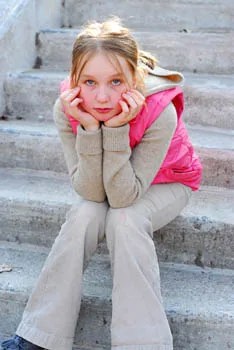Childhood asthma is on the rise. More than 4 million children will suffer an attack this year. Pediatricians have come a long way in the last 15 years in terms of understanding and diagnosing asthma in children. However, it can still be tricky. Parents should be prepared to question the diagnosis and seek other possible causes of wheezing, coughing or shortness of breath.
Sometimes the diagnosis of asthma is obvious. I have an 8-year-old patient who wheezes with colds and with exercise. She coughs in her sleep and has shortness of breath during physical education in school. After being prescribed albuterol and inhaled steroids for asthma, she is doing well in gym and sleeping more soundly at night.
Sometimes, however, asthma can be very subtle and present with unusual symptoms. For example, a 7-year-old patient was always taking big, heavy ‘sighs’ — no matter the activity. Parents and teachers thought she was bored and disinterested. She also seemed to have prolonged episodes of coughing with every cold and occasionally suffered from bronchitis. The ‘sighing’ and coughing disappeared once the asthma was diagnosed and treated.
 Just as it is important to diagnose and treat asthma in “real” asthmatics, it is equally important and sometimes more challenging to realize that many children who are told they have asthma may not have asthma at all.
Just as it is important to diagnose and treat asthma in “real” asthmatics, it is equally important and sometimes more challenging to realize that many children who are told they have asthma may not have asthma at all.
Many other maladies and diseases can mimic asthmatic symptoms. For example, many children suffer from poor physical fitness. Their lungs simply may not be accustomed to the breathing capacity needed for certain physical education activities, such as running track in the beginning of the year. Other causes can include obstructive sleep apnea, laryngo-tracheo-malacia (floppy neck cartilage or vocal cords), vocal cord dysfunction and hypersensitivity pneumonitis.
Poor physical fitness or fitness that is not up to par with the activity at hand is something I see on a regular basis. A common complaint from parents is that their son or daughter begins running track at school and suddenly starts feeling shortness of breath and chest pain during practice. Sometimes children cough with exercise. Some will even get the sensation of wheezing or noisy breathing. These are all very common complaints in patients with asthma, so often the child will be prescribed an asthma inhaler; if this does not help, then inhaled steroids are prescribed. But sometimes, the symptoms persist.
Pediatric pulmonologists have extensive experience dealing with children’s sleep and asthmatic problems. During the initial consultation, I conduct a pulmonary function test. I perform a cardiopulmonary stress test with pulmonary function where the distinction can be made between poor physical fitness and exercise-induced asthma. Treatment for poor physical fitness is easy: Increase the child’s physical activity and endurance and remove the unnecessary medication. Further investigations can include exercise testing, overnight sleep studies, and/or allergy testing.
We’re better at diagnosis and management of childhood asthma than ever before. Doctors and parents, however, need to make sure that the diagnosis of asthma is correct. As one of my professors taught me: “All that wheezes is not always asthma. All that is asthma may not always wheeze.”





















